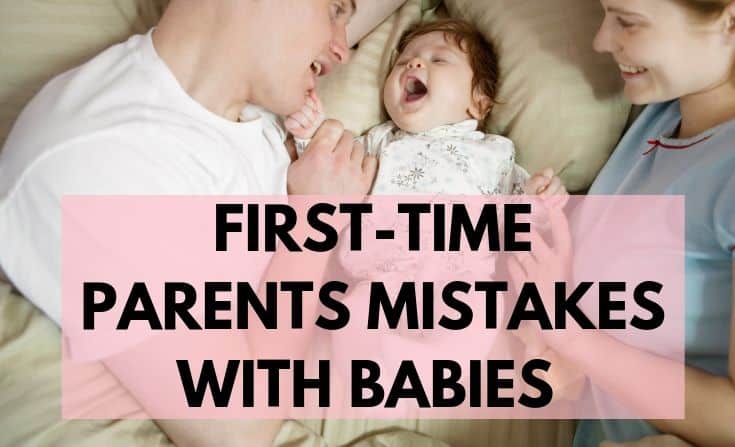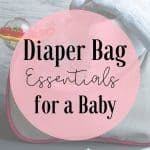Parenting is hard when it comes to being a first-time parent. Taking care of a newborn is overwhelming for the first time. However, moms and dads still manage to get through this early phase after birth with all that sleep deprivations and exhausting, stressful days. First-time parents are more likely to make mistakes with newborns because of no prior hands-on experience, just tidbits of knowledge here and there.
In this phase of trial and error, no one can be fully prepared for all those challenges on the way to parenthood. No one knows what is coming up and when.
Although there might be tons of dos and donts for first-time parents to know before they have a baby at home and still they cannot know all of them, however, these are a few newborn care tips no one would tell you because they may think you probably know it already.
There are chances while you are reading this post; you may find most of the stuff you know already. Still, it does not hurt to refresh your knowledge about newborn baby care.
The goal is to create awareness so that you can avoid these mistakes with newborns in your parenting journey.
This post may contain affiliate links. Please read our disclaimer for more information.
First-time parents mistakes with babies
Although some of these situations may seem unreal, still they are not uncommon. These first-time parents mistakes with babies can be avoided with awareness about parenthood challenges.
1. Introducing pacifier in the first couple of weeks after birth
Pacifiers are great alternatives to teach babies to self-soothe when they are only interested in sucking and not eating or not hungry. When mom is in the post-birth phase, right after delivery, she is struggling with establishing milk supply, latching, and learning how to breastfeed. This may take a while for moms to have a good milk supply in the first several weeks after the baby is born.
Experts advise parents to wait at least 4 to 6 weeks to start offering a pacifier until moms get a thorough milk supply, and also babies get to know how to nurse.
40+ Breastfeeding tips for new moms
2. Using baby powder
Experts advise not to use baby powder as it may cause lungs issues later in life. However, if you STILL want to use it, look for TALC-FREE baby powder that is supposed to be less risky.
The best thing is to avoid using baby powders altogether.
3. Warming up breast milk in the microwave
Breastmilk contains antibodies and microwave kills them. Although it is NOT advisable to use the microwave to warm up breastmilk or formula still if you are adamant about using it, NEVER use the microwave for breastmilk.
That is why it is recommended to use a bottle warmer for both formula and breastmilk and avoid microwave for uneven heating that may burn a baby’s mouth.
4. Leaving your baby in the car
A situation like this may sound unreal, but many parents in their postpartum period tend to forget babies in the car, that unfortunately, gets fatal for them. That being said, do not leave your baby in the car no matter how short your visit is at a grocery store.
If you are forgetful, have something hanging on your car rear-view mirror that reminds you about a baby in the car. Also, you can have this baby car mirror that would keep telling you about babysitting in the back seat. Moreover, you should always double-check your backseat when you leave the car.
5. Too many clothing layers
As a general rule, babies need one extra layer than what you are wearing. During the winter season, please do not add on too many layers, especially when you are going out. Car seats keep babies cozy, you can add on one blanket.
No matter what season it is, keep an extra blanket at all times when you are going out with a baby.
Tips for new parents when going out with a newborn.
6. Feeding the baby from the same bottle, she fed hours ago
Leaving milk bottles outside for longer, which babies already drank from, tend to develop bacteria from the saliva of the baby’s mouth. These bacteria multiply even if the bottle is in the refrigerator, contaminating milk which baby leaves behind.
As a general rule, the unused formula can be stored in the refrigerator for up to 48 hours and 3 to 4 hours outside at room temperature. 68 to 70 degrees Fahrenheit
7. Latching does not always mean you have a supply
Well, at the beginning of breastfeeding journey, moms have colostrum, thick yellowish milk, and after that, it gets into a white and thinner form of a liquid called transitional milk.
When you start nursing, some babies not all, latch perfectly, seems like they are latching well, but they do not seem settled and keeps crying. If there are no other reasons like tiredness, dirty diaper, etc. You might want to make sure if you have enough supply or your baby wants to eat more.
Although milk supply takes about 3 to 5 days and during that time colostrum is supposed to be enough for what baby needs at this time. You still have to make sure your baby is gaining weight on the two weeks appointment. If not, follow your pediatrician advice.
To make sure if your baby has fairly enough meals every time she nurses.
Some of the visible signs are:
- Baby is calmer while nursing.
- Her ears have a movement.
- You may notice a gulping sound if there is enough to eat for the baby.
Once you have a baby, an excellent postpartum diet helps you get a good milk supply. If you are struggling with milk supply you may want to find out about food you can eat that helps you have a better milk supply.
Using a breast pump, manual, or electric would help you keep track of milk supply you are having and how much you are feeding your baby.
Struggles of breastfeeding – how to deal with discomforts of breastfeeding.
8. Ignoring signs of dehydration in babies
Babies get dehydrated quickly; that is why it is essential to feed them every two hours for the first several weeks after birth. When babies get dehydrated, they may get lethargic, fatigued, tend to sleep longer than usual and most importantly seem less interested in eating.
Sunken fontanelles is a clear sign of hydration. Seek medical evaluation immediately if you notice any signs of dehydration.
9. Ignoring flat spot on Baby’s Head
Babies’ safe-sleeping is when they are sleeping on their back on a firm mattress. Baby’s head is naturally soft so it can pass through the birth canal. After a vaginal delivery, you may notice her head looks like cone-shaped (sometimes weird looking). Eventually, her head takes a good shape with time. Make sure baby is sleeping on her back, not sides.
However, due to the firm mattress and extended lay-down, babies end up having flat spots. By the end of the second and third month, it starts getting evident if your baby is developing a flat head. Pediatricians may notice flat spots on babies head due to pressure for an extended period of time.
For mild flat head case, you may want to flip the sleeping position (left and right). On the other hand, doctors may recommend helmet therapy for extreme cases.
Once baby’s umbilical cord comes off, you should encourage tummy time more to prevent flat head. Keep baby elevated in the rockers or bouncers during the day to avoid the flat head syndrome.
You can also get the flat head prevention pillow that can avoid baby having a flat head due to laying down on her back.
Moreover, after the first several weeks, whenever your baby is awake, try to keep her active outside a car seat, rockers, or bouncers. Let them stretch, roll, and have tummy time activities. Also, do not keep your baby strapped in a car seat for extended hours.
Read more
Baby’s head handling – Things you need to notice about baby’s head, mouth, skin and face altogether. .
10. Not noticing Tongue-tie
A tissue which connects the tongue with a bottom of the mouth helps the tongue to extend out, so baby can latch properly. When a baby has a tongue-tie, she may have trouble latching on to the breasts to nurse due to tongue-tie.
You must get this condition evaluated. If this does not resolve on its own, you may want to get a small procedure done at the doctor’s office to treat tongue-tied babies.
11. Ignoring yeast infection in the diaper area
Diaper rashes are common problem babies have who wear diapers. There are several reasons babies end up having diaper rash due to formula intolerance, milk issues, hot weather, and keeping baby in a soiled diaper for long hours. There are plenty of home remedies that help treat diaper rashes. For mild rashes, I highly recommend using A+D cream; this was a must when all other diaper creams failed.
Sometimes diaper rash is due to a yeast infection that has to be evaluated by the doctor. If it is a yeast infection, you need to use medicine for your baby to treat diaper rash.
Read more
The art of diapering – everything new parents need to know about baby diapering.
12. Ignoring yeast infection in the mouth
If you notice white spots in babies mouth, inside the cheeks, on and around the tongue that may seem uncomfortable to you, immediately get it evaluated. Sometimes the same yeast infection (we discussed in #11) from diaper area travels to baby’s mouth and end up causing thrush.
Thrush can be mild or severe, so your doctor needs to prescribe medicine after evaluation. Make an appointment at your earliest to get it checked with your doctor.
13. Baby refusing two frequent feedings in a row
Babies have to eat every 2 to 3 hours for the first several weeks after birth. Suddenly, if your baby is skipping two frequent feedings in a row and does not seem interested in eating, then you should get her evaluated by the doctor.
As a first-time parent, you have to pay attention to baby’s feedings and how frequent your baby is nursing. Baby should be getting the right amount of nutrition, so she does not get dehydrated.
Why does your baby suddenly start refusing the bottle or breastfeed?
14. Not paying attention to a baby throwing up
Just like you should be concerned about the baby feedings, the same way you have to be super careful if the baby is throwing up two or more frequent feedings in a row.
Spitting up is different than throw up, and spit-up is considered normal. However, if baby throws up more than twice for two or more consecutive feedings should never be ignored and has to be brought to a doctor’s attention immediately.
Legit reasons why your baby is throwing up. Find out how much throw up is too much.
15. Not using the hat for the first few months of baby’s life
Do you know why newborn babies need hats?
Babies are born with a large head as compared to the rest of their bodies. That means babies lose a significant amount of heat from their heads and faster as compared to the lower part of the body. Having baby wear a hat for the first several months of baby’s life is essential.
Whenever you go out, be it summer or winter, do not forget to take baby’s hat with you. It is a must-have. You can find some cute baby hats here.
Baby Clothing Essentials you need for the first year.
16. Worrying about Baby acne
Baby acne is a common issue with newborn babies. It is very likely for babies to get acne during the first few weeks. First-time parents should know that this baby acne goes away on its own. However, if you still want to apply something you can use breastmilk or else it will go away on its own.
How to deal with baby’s skin conditions.
17. Ignoring dryness on baby skin
Experts advise not to apply lotion for the first few weeks after birth. Although frequent bathing may dry out their soft skin. Being a first-time parent, you have to keep an eye on baby skin. If you see baby skin is getting dry or itchy, and you may notice your baby is scratching and getting uncomfortable then follow your parental instincts.
Keep baby skin moisturized with coconut oil or use fragrance-free lotion 4 to 6 weeks after birth.
For super itchy and scratchy skin, Curel itch defense lotion I would highly recommend. His skin got extremely dry for not moisturizing it after bathing. This lotion I have used for my son, and it worked.
18. Ignoring Fever if the baby is under three months of age
Fever in newborns can be serious. If a newborn baby gets the temperature under three months of age, no matter how minor it may seem, you have to discuss it with your pediatrician. Fever more than 100.4 degrees in babies need immediate medical attention.
Baby’s sick days essentials you must have in your medicine cabinet at all times.
19. Not feeding baby on-demand
Babies need to eat every two to three hours for the first several weeks of their life. However, this does not mean you do not feed if you notice hunger cues, and your baby may seem hungry within 1 to 2 hours.
Feeding on-demand help moms to establish a good milk supply sooner than later. Once babies regain their birth weight and start eating well during the day, you may stretch the time between feedings.
Read more
15 health conditions babies need to get an immediate evaluation.
Parents are the best judge for babies; they know better and can follow their parental instincts. The first and most important thing about parenting is, not following every advice you get. You should be AWARE and act according to your circumstances and keeping your baby safe, your priority.







